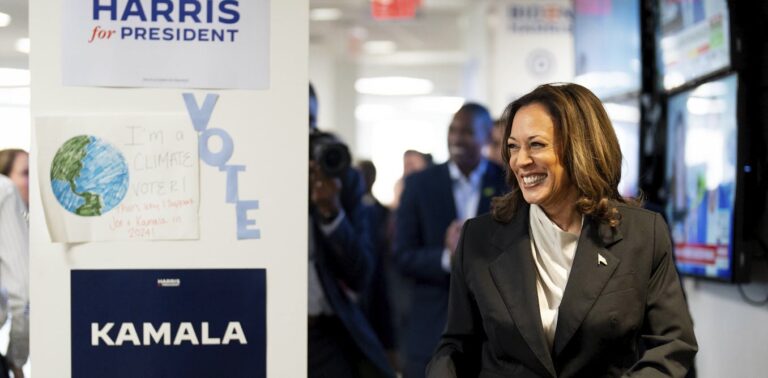The 2024 US presidential election has taken another dramatic turn with President Joe Biden withdrawing his re-election bid and nominating Vice President Kamala Harris as his successor.
The swift transition from Biden to Harris has reinvigorated the Democratic Party and its donors around the younger candidate, but it has also raised new challenges for Donald Trump, who remains the presumptive front-runner: Harris will define the campaign before Trump does.
To discuss the rapidly changing world of theatre, we invite Lester Munson, a research associate at the Center for American Studies.
Munson is a longtime Washington insider who served in the George W. Bush administration, was chief of staff to a Republican senator and staff director for the Senate Foreign Relations Committee, and currently works for BGR Group, a major government relations firm in Washington, DC, from where he joins the podcast.
On Kamala Harris’ nomination now set to be confirmed at the Democratic Convention next month:
At this point, her candidacy is unopposed. She has the support of hundreds of Democratic Party officials. She has raised a significant amount of money and seems to really dominate the Democratic political landscape right now. She appears to be the nominee with unanimous and near-unanimous support.
What kind of candidate is Harris?
She is certainly younger than the former Democratic candidate. Much younger than Donald Trump. She is more of a fresh face. The way she behaves in public is different. It’s fundamentally different from Joe Biden and Donald Trump.
And I’ll say as a Republican, I think she’s a relatively attractive person in that she’s charismatic, she’s magnetic, she can light up a room. There’s no question about that. And I think people will give her a chance to get their votes. Whether she can do that is another question.
Some say the assassination attempt changed President Trump, and Manson agrees.
I think he has changed. […] If you just look at the acceptance speeches [Republican] At the convention, he looks a little different. He seems more at peace with the universe and grateful to be alive. That seems genuine to me.
Munson gives advice to Anthony Albanese on what to do if Trump wins a second term.
My advice to the Prime Minister is to work on the relationship, to spend more time personally with President Trump, find out what he cares about and, if it benefits you, find a way to get him some kind of win.
If he returns to the presidency, he’s not going to rely on international law, written agreements, treaties, or trade deals. He’s going to make decisions based on very superficial things: looking someone in the eye, their body language, how they shake your hand, how attractive they look on TV, how tall they are. But he’s going to know that. So he’s going to use that to his advantage, and try to be in the right place at the right time to get the results he wants from the relationship.

